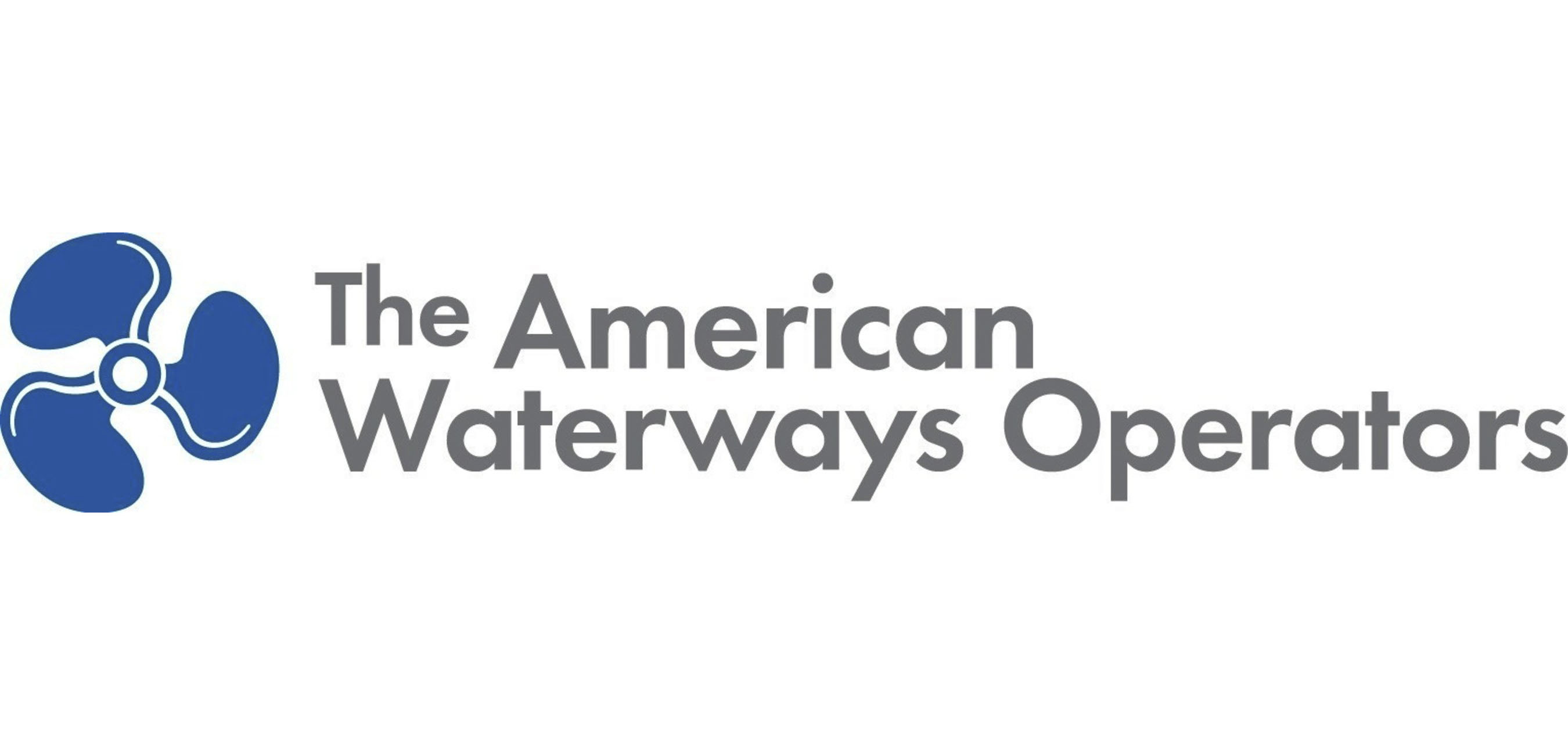In between a schedule of Capitol Hill appearances and Zoom meetings that has not eased up despite coronavirus restrictions, Jennifer Carpenter, CEO of The American Waterways Operators, took time to speak with The Waterways Journal.
The COVID-19 restrictions have changed how AWO does some of its business. Each year, AWO has been accustomed to having a series of vessel tours in which members of Congress, state lawmakers and other officials are taken aboard towboats and tugboats to familiarize them with the workings of the inland towboat and coastal tugboat industries. The popular trips have been among AWO’s most successful events.
This year, the trips have had to be done remotely, with visitors dialing in as cameras toured the boats. So far, said Carpenter, those virtual tours have been held on the West Coast only, but AWO plans to expand them. The events are planned to include remote chats with boat crews and company officials.
New Officers Elected
The AWO’s own board meetings have also been virtual. At the latest one on May 21, the AWO elected a new slate of officers. Art Mead, vice president and chief counsel at Crowley Maritime Corporation, was elected chairman of the board; Del Wilkins, president of Illinois Marine Towing Inc. was elected vice chairman; and Clark Todd, president and CEO of Blessey Marine Services Inc. was elected treasurer. Mead succeeds outgoing chairman Scott Merritt, former chief operating officer of Foss Maritime Company LLC.
Based in Jacksonville, Fla., Mead joined Crowley in 1996 as an associate corporate counsel. Prior to joining Crowley, he worked at the U.S. Department of Justice, Admiralty and Shipping Division, and held commercial marine transportation related positions at Stolt-Nielsen Inc. and Maersk Line Ltd.
Mead also served as a U.S. Navy commander with the reserve component of Military Sealift Command. He has a bachelor’s degree in marine transportation from the State University of New York Maritime College and a law degree from Golden Gate University.
Carpenter welcomed the newly elected board, saying, “My vision is of an AWO that is … experienced by our members as your indispensable organization, crucial to enabling your companies and our industry to survive, adapt and thrive in a rapidly changing business and public policy environment.” “COVID-19 is the latest challenge and is one for the history books, but it is not the only one, and it won’t be the last.”
In his remarks, Mead emphasized the resilience and adaptability of the tugboat, towboat and barge industry as it continues to serve the nation during the COVID-19 pandemic:
“The response to this crisis by AWO member companies, staff and our mariners has been nothing short of extraordinary,” he said. “While shelter in place and work from home orders proliferated from state-to-state, our mariners and our workers continued delivering millions of tons of needed raw materials, consumer goods and energy. But during COVID-19, our industry has shown the nation what we’ve always known to be the case: That our industry is resilient and adaptable.”
The AWO website quickly became an important clearinghouse for COVID-19 information as it relates to maritime operations. AWO has held a series of webinars on industrial hygiene, conducting remote inspections and audits and preparedness planning.
AWO Helps Collect 229,000 Face Masks
Part of that response includes close collaboration with government agencies. As a member of the Maritime Sector Coordinating Council’s Facial Covering Task Force, AWO recently assisted the Federal Emergency Management Agency in allocating non-medical-grade cloth facial coverings as part of the federal government’s phased approach to ensure the safety of critical infrastructure workers as America’s economy reopens. AWO sent an alert out to members to solicit requests for the masks, which were available in increments of 500. In total, AWO received and forwarded requests for 229,000 facial coverings. The masks will be shipped directly to business locations for use by their critical maritime employees. Even as the economy partly reopens, CDC experts have cautioned that use of masks will remain important for a long time.
Layered Listening
Carpenter agreed that listening to members has been a theme of her tenure at AWO. She has implemented what she calls a “layered approach” to listening, with multiple forms of feedback. On March 12, AWO sent out a comprehensive, confidential survey to gauge members’ thoughts on a range of topics. But at around that time, pandemic restrictions were just beginning to kick in, so the survey will be reopened for additional feedback in June. AWO has also been having a series of closed weekly conference calls with members to discuss the best ways to operate under COVID-19 restrictions and to air concerns.
Among the positive results have been communications with the Coast Guard that have clarified uncertainties or gaps in its COVID-19 policies. “Some folks have been looking for a little more clarity from the Coast Guard on health measures,” Carpenter said. She believes the Coast Guard was waiting for guidance from the CDC and other federal agencies before publishing its own health policies. “We’ve been generally pleased with the regulatory flexibility shown by the Coast Guard,” Carpenter said.
The Coast Guard recently conducted a remote Subchapter M inspection in Port Arthur that Carpenter said went well and was a “positive experience.”
Future Of RCP
A frequent topic of the internal listening sessions is the role that AWO’s Responsible Carrier Program (RCP) should play, now that the Coast Guard’s Subchapter M regulations are fully implemented. On April 8, AWO’s RCP Standards Board authorized extensions of up to 90 days for RCP audits of vessels and front offices, due to COVID-19 challenges.
AWO’s website notes, “The [RCP] program complements and builds upon existing government regulations, requiring company safety standards that exceed those required by federal law or regulation. Since 2000, compliance with the RCP has been a condition of AWO membership.”
Carpenter said she is encouraging a “diversity of perspectives” on the RCP and added, “Eventually we will have a decisional conversation on that.”




